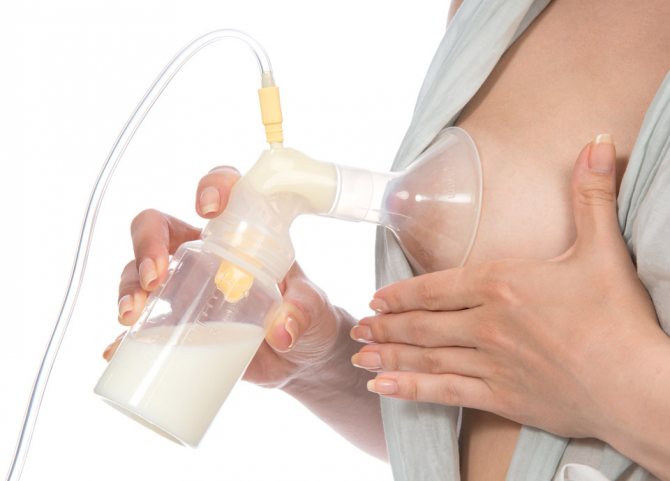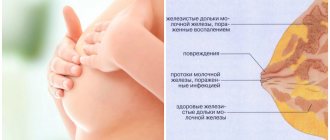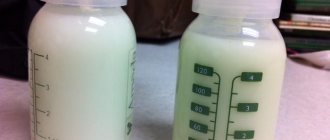Times of extremes
In the Soviet era, babies were sent to nurseries already 1.5 months after birth, and there was no talk of any long-term feeding then.
Now the maternal role is more popularized, and feeding a child up to 2 or even 3 years of age does not raise any eyebrows. But having children is not a woman’s only purpose, and she cannot breastfeed indefinitely.
The modern reality is that someone promotes life without children, someone gives birth but does not breastfeed at all, and someone continues to feed 3-year-olds even in public places.
Of course, a woman herself decides whether to give birth to children and for how long to breastfeed them. But what would be more correct?
Weaning
This is what can really create a problem no less than chicken pox or intestinal upset in a baby - an attempt to wean. If young children can be capricious when trying to transfer them to IV, then an “independent” person aged six months or a year is capable of organizing a multi-day protest, demanding breastfeeding and not delving into the fact that the mother is sick, is away, has to go to work, etc. .d. Who wins in this case - a child, a mother or a father tired at work, who does not have a restful rest at home? I'm afraid no one.
Benefits of long-term feeding
Experts from the World Health Organization say that a child should be breastfed until he is 2 years old. This increases children's immunity and enriches the body with essential microelements.
Some people believe that the composition of milk does not change, so it is useless to drink it. But that's not true.
After a year, the nutritional value and fat content of the product changes, the amount of lactoferin and immunoglobulin - elements that support immunity - increases.
Let's take a closer look at whether there are significant benefits from breast milk after a year.
All the benefits of breast milk after 12 months are as follows:
- Replenishing the level of minerals and vitamins in the children's body. Breast milk is the healthiest, it is incomparable to either goat or cow milk.
- Maintaining a sufficient amount of calcium in the baby. Most children at this age do not like to eat milk porridge, cottage cheese, kefir, and some are lactose intolerant. The best option for such babies is a long lactation period.
- Physiological sucking affects a properly formed bite and protects teeth from caries.
- Increasing intellectual abilities. This is explained by the content of fatty acids in milk, which have a positive effect on brain cells.
- Increased immune response. The presence of immunoglobulins in milk contributes to the speedy fight against infectious diseases.
- Easy to fall asleep. The baby instantly calms down and falls asleep with the help of his mother’s breast; he does not need to be carried in her arms and rocked to sleep for hours.
- Minimizing the possibility of allergic reactions. Mother's milk contributes to the maturation of the imperfect digestive system; it does not irritate the vulnerable mucous membrane in infancy.
- No risk of contracting an intestinal infection.
- A distraction during the eruption of the first teeth. And due to the content of morphine-like compounds, it has a mild analgesic effect.
Long-term lactation is also beneficial for mothers. Since the menstrual cycle is not restored, the woman will always be in a good mood due to the absence of premenstrual syndrome.
In addition, breastfeeding helps increase iron levels in the body and reduces the risk of developing ovarian and breast cancer.
Breastfeeding and bottle feeding: pros and cons
Mother's milk is initially sterile and always at the right temperature.
It adapts to the baby’s requirements: it is produced in exactly the quantity that is enough for him, has the correct consistency and is rich in microelements depending on the time of year (hot summer or cold winter) and the availability of complementary foods.
There is no need to boil it or reheat it, jumping up in the middle of the night and rushing to the kitchen. And this is an undoubted convenience: you can put your baby side by side on his side and doze while he eats.
On the other hand, artificial feeding provides other opportunities. And the main one is the optional participation of a tired mother in the process.
After all, any family member can dilute the concentrate, heat it and feed the child from a bottle.
In addition, when visiting or on a walk, you are unlikely to expose your breasts (in Europe there is nothing shameful about a mother feeding her baby on a bench, but in our country we are not yet accustomed to this). But the bottle will be a salvation.
Artificial feeding allows the mother to leave home more often and not be tied to the baby around the clock. And there will be no need for breast pads.
Thus, breastfeeding strengthens the contact between mother and child, and artificial feeding allows both father and grandmother to communicate closely with the child.
However, you can also express breast milk using a breast pump into a sterile bottle and leave it in the refrigerator “just in case”?
Disadvantages of prolonged lactation
Despite the considerable number of advantages, breastfeeding after a year also has its disadvantages.

These include:
- The possibility of developing iron deficiency anemia in a baby. This is explained by the increased needs of the child’s body for vitamins and microelements. This deficiency can be suspected by the baby's lethargy and pale skin. After taking a blood test and confirming the results, it is necessary to take medications and diversify the children's diet.
- Psychological dependence of the baby on the mother. You won’t be able to leave even for a few hours; getting used to kindergarten will be much more difficult.
- Sleep problems. If you have practiced co-sleeping with your child, then weaning you from breastfeeding at 1 year will cause a storm of indignation. The baby certainly won’t want to sleep alone in his crib without his mother’s breast.
- Lactostasis in the mammary glands. An abrupt cessation of lactation at 1 year of age leads to stagnation of milk. Therefore, monitor the fullness of your breasts; if they are hard, use a breast pump.
- Lactational amenorrhea (lack of menstruation), calcium and estrogen deficiency. Long-term breastfeeding also increases the risk of developing osteoporosis, a progressive skeletal disease that is accompanied by a decrease in bone density. But other experts say that bone structure quickly recovers after breastfeeding, as the bones begin to intensively absorb calcium from food and medicine.
Bites cannot be prevented either: after a year, children are actively teething, and they very often bite their breasts and nipples, which is very painful and dangerous.
How does breastfeeding benefit a baby's health?
Relatively recently, a friend of mine, who became a mother at a not very young age, came across me in a store with a grocery cart topped with packages of expensive artificial nutrition. This surprised me - her son is still very small, and she planned to breastfeed him for at least a year, fortunately, the husband is able to support his wife and child.
It turned out that she had to switch the baby to artificial feeding for the sake of his health. No, she is not a contagious patient, and the milk came out as it should. But a seemingly healthy breastfed baby started bleeding! Blood was oozing from his mouth, nose, and what was inside of him was scary to even think about.
It turned out, simply, that a mother with mild intestinal dysbiosis had incomplete milk; it lacked the important vitamin K , which is responsible for blood clotting. And the baby himself also lacked it in his body; this is not uncommon in newborns.
Everything turned out okay for them, but the worried mother firmly decided that she would rather buy good formulas; at least no one has ever had bleeding from them, they contain everything they need.
How many situations are there when a breastfed baby develops serious problems due to the fact that the mother ate or drank sweet/spicy/fruit/carbonated drinks and so on? These problems are familiar to most breastfeeding women, and sometimes the mother already dreams of weaning, because then these restrictions can be stopped.

How to end lactation
The diet of a child in his second year of life should contain a number of products that will enrich the child’s body with the required elements. The baby should not be fed only milk. Use it as an additional power source.
According to the recommendations of lactation specialists, the ideal period for completing breastfeeding is the age period from 1.5 to 2 years.
By this time, the volume of breast milk is significantly reduced, and the lactation process may end naturally.
When your child is 2 years old, you will be able to explain that you will not feed him like that, because there are other tasty and varied foods. You can also say that you are in a lot of pain and clearly express your emotions so that the baby will feel sorry for you. If persuasion doesn't work, use grandma's method - lightly spread mustard on your nipples.
It is recommended to resort to gentle weaning: reduce the number of feedings gradually over several months. So the mammary glands will reduce milk production, and the baby will adapt more easily.
But under no circumstances should you bandage your breasts - you can provoke the development of mastopathy and breast cancer.
Before weaning your baby from breastfeeding, it is important to become confident in your actions and realize that you are doing the right thing (after all, it is impossible to breastfeed endlessly).
First, stop feedings that are not associated with sleep, then stop breastfeeding before naps. But do not replace breasts with a formula bottle or pacifier.
After eliminating daytime feedings, eradicate nighttime feedings as well. You need to teach your baby to sleep in his own crib (if he previously slept with you). It won't be easy, but if the child cries at night, let dad come to him, but not you.
How feeding affects breast shape and weight of mothers
You've probably noticed that some people gain weight during lactation, while others, on the contrary, lose weight. It all depends on the characteristics of metabolism.

If you have the right metabolism, then lactation will help you shed pounds, since about 500 calories are spent on milk production and feeding.
If you are actively gaining weight, then you may have problems with your metabolism or you eat a lot of fatty foods and easily digestible carbohydrates.
Such a diet will negatively affect your figure and shape.
As for the breasts, the natural gradual cessation of lactation contributes to maintaining its shape.
After 2 years after birth, the glandular tissue is replaced by fatty tissue, and the breasts acquire the size and shape that they had before pregnancy.
Alcoholic drinks
Alcohol, after consumption, is excreted freely and quite quickly into breast milk, however, as American breastfeeding researchers have established, mothers are allowed to drink white or red natural wine in small quantities. It is advisable to exclude champagne, traditional for New Years (as well as beer and other fizzy drinks), from the menu completely.
The maximum allowed amount of alcohol depends on the age of the child. 3 months after giving birth, a nursing mother can drink a maximum of a sip of wine, but if the baby is older than six months, up to a glass. Nevertheless, it is not worth risking the child’s well-being, and ideally you should prepare a supply of milk in the freezer in advance.
However, experts on our site believe that a nursing mother should not drink any alcohol while breastfeeding. If you want to drink alcohol during the New Year, express milk for feeding in advance.

You can return to breastfeeding the very next day, since alcohol is eliminated from milk very quickly: the alcohol contained in one glass of wine will leave the body of a 54-kg woman in a few hours.
You should also know that alcohol (like smoking) temporarily impairs lactation.











